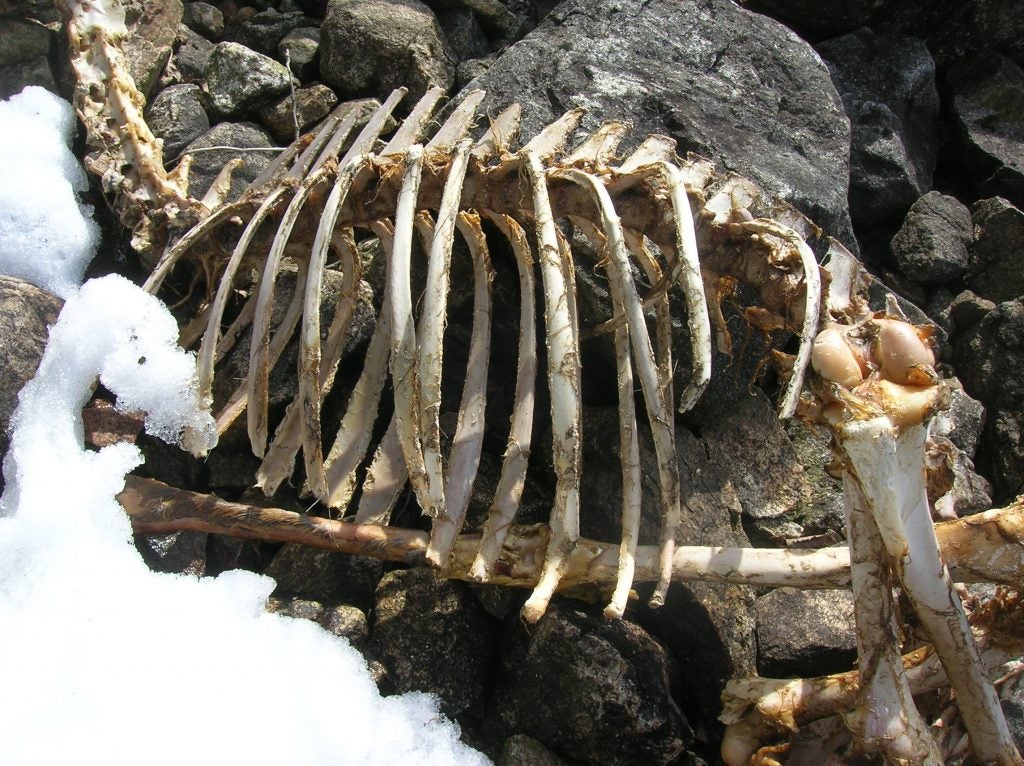Published in Issue 63.1: Winter 2024
“THE GOETHEANUM” begins innocently enough. Our speaker sits on the toilet, scrolling through their phone. And yet, the portals made and unmade in Cheney’s work shift this poem from its quotidian morning stance to something shimmery, extraordinary. This is a poem that thrums with life forms, with the spatial, with a stunning poetics of attention. When I read this poem, its suite of images writhes, alive: cicadas “wet-birthing themselves from their exoskeletons,” like “little white vampires / sitting up from their coffins,” a “wrong turn” leads to “library dedicated to anthroposophy. The science / of spiritual things.” Us readers are brought into a magazine inside of a bag; we catch a scrap of dialogue (“a little wizardy”); and later, we lay with the speaker “in a field / of still-damp cut grass,” reading a James Salter short story. The speaker’s awareness of what it is to read and receive the world in mediated forms is uncannily sharp. Cheney’s poem opens all the windows, lets all flavors of sound and air in. The speaker admits, halfway through the poem (while reading), “I didn’t know / what the story would be about.” And I love this admission: the ways it siphons through the entirety of this poem. I, too, reading Cheney’s “THE GOETHEANUM,” find myself weaving through a sequence of surprises, uncertain yet delighted by what I find. The closing couplet, “Some days I wake up and feel / like a monarch has landed on my nose,” is a delicious moment. Reading these lines, I feel the touch of something luminous and small, sacred and winged. There is an openness here that I want to live and dwell in.
-Carlina Duan (Poetry Editor, Michigan Quarterly Review)
Sitting on the toilet this morning I clicked
on a photo of a vast, brooding structure,
which opened up an article
on Dornach, a small commune
on the Rhine near Basel
built in a megalomaniacal, organic style
by a man named Rudolf Steiner in the 1910s.
I recognized his name
from articles about natural wine. Last summer
on our fake honeymoon
in rural New York state, Ari went out
for groceries, made a wrong turn, and ended up
parked in front of a library
dedicated to anthroposophy. The science
of spiritual things—
the teachings of Steiner. In her bag
she still had the magazine
in which she had read the way
the horn from a slaughtered cow
should be packed with the fresh manure
of a lactating first-calf heifer and buried
in the earth of a vineyard
on the sixteenth night of the Hunter’s moon.
She said ending up there felt “a little wizardy.”
I packed my bag for the day.
School was out. It was May.
The most concentrated brood of cicadas
in a North American century
had spent the night wet-birthing
themselves from their exoskeletons.
They looked like little white vampires
sitting up from their coffins.
I was excited to read a new story
by James Salter, was taking my notebook and Dusk
to the park. I didn’t know
what the story would be about. I stopped
at McDonald’s on my way, got large fries
for free, it was the Daily Deal.
Lying on my back in a field
of still-damp cut grass,
about halfway into the story, there
is a moment when the narrator suddenly
feels as if he has become hypnotized.
In a café in Basel in evening,
over asparagus and goulash, the woman
with whom he has become obsessed
is showing him a postcard
photograph of a vast, brooding structure.
He suddenly feels
as if he has become unable to speak. The structure
is called the Goetheanum.
Some days I wake up and feel
like a monarch has landed on my nose.
Samuel Cheney is from Centerville, Utah. He is the winner of a 2021 Pushcart Prize and lives in Baltimore, where he is at work on his debut poetry collection.






